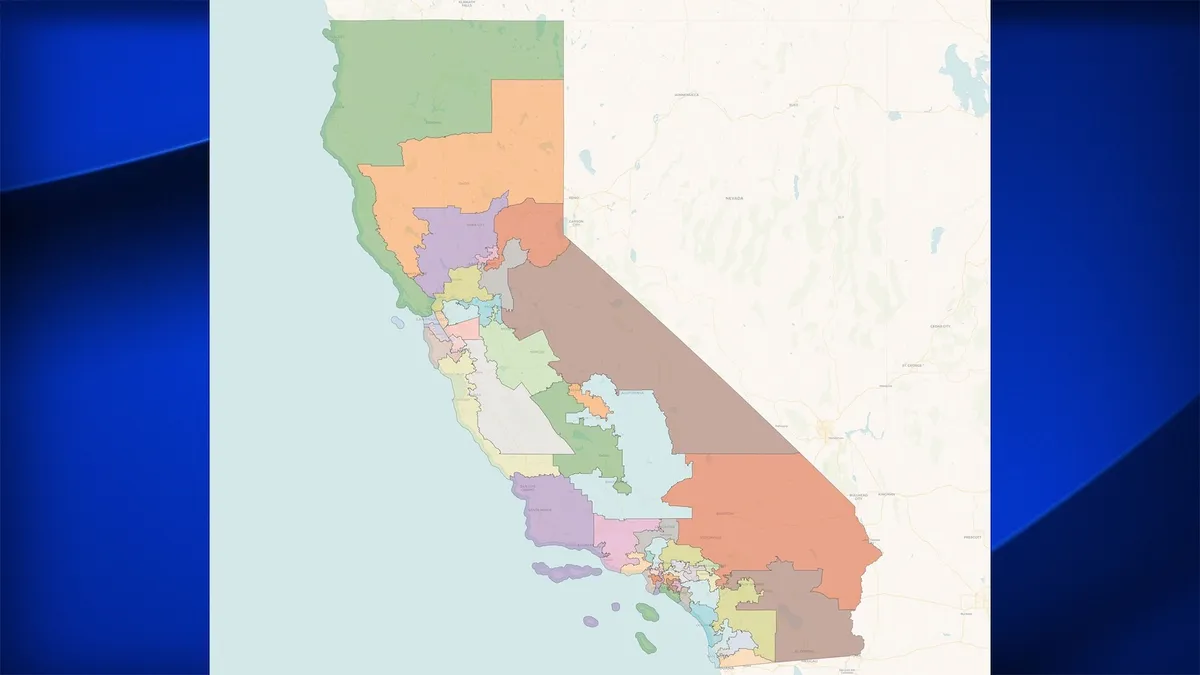
In a significant political move, proposed new congressional maps in California are set to be presented to voters in a special election this fall. These redrawn district lines could potentially enable Democrats to flip five Republican-held seats while also fortifying about five Democratic incumbents in competitive districts. This strategic realignment aims to reshape the political landscape of California, enhancing Democratic representation.
The newly posted maps, available on the California State Assembly website since Friday evening, are currently draft proposals. They are subject to alterations by the state legislature, which will convene next week to discuss these changes. This legislative action follows a recent appeal from California Governor Gavin Newsom, who called for a special election concerning the new maps. His initiative is seen as a response to the mid-decade redistricting efforts being spearheaded by Republicans in Texas.
The Democratic Congressional Campaign Committee (DCCC), the campaign arm of House Democrats, took credit for the submission of these maps to the California legislature. In a statement released on Friday, DCCC Executive Director Julie Merz expressed confidence in the proposal's potential for broad support among California legislators and voters. “We anticipate this proposal will have widespread support both among California office holders and various stakeholders across the state,” Merz stated, emphasizing the need to counter Republican efforts to manipulate election outcomes.
Paul Mitchell, a redistricting and data expert who contributed to the creation of the maps, shared insights during an interview with ABC News San Francisco station KGO-TV. He noted that eight of the proposed districts remain unchanged, while another twenty have seen minimal adjustments. The overarching objective is to counteract the proposed congressional maps in Texas without drastically altering existing district lines.
Mitchell highlighted that the proposal not only aims to convert five Republican-held seats to favor Democrats but also seeks to strengthen the positions of around five Democratic frontline candidates facing tougher challenges from Republican opponents. “This is a way to push back on what Texas Republicans are doing, on what Trump is doing,” he remarked.
In response to these developments, Republicans have raised concerns, alleging that Newsom's initiative is politically motivated. NRCC Chair Rep. Richard Hudson (R-N.C.) stated prior to the release of the proposed maps that Newsom has failed to address significant issues such as homelessness, crime, and rising costs in California. He accused Newsom of attempting to “shred California's Constitution” in an effort to boost his presidential ambitions.
Hudson asserted that Californians oppose Newsom's actions, labeling them as self-serving tactics designed to manipulate the electoral system. The NRCC has vowed to challenge this perceived power grab both in courts and at the ballot box to halt Newsom's plans.
The unfolding situation surrounding the proposed congressional maps in California represents a critical moment in the state's political arena. As the state legislature prepares to deliberate on these proposals, the implications for both parties could be significant, potentially reshaping the balance of power in Congress. With the special election on the horizon, all eyes will be on California as voters weigh in on these transformative changes.